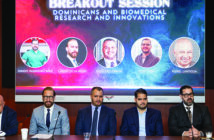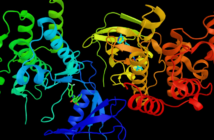
Paul M. Knopf, PhD. Photo courtesy Carol Knopf
Paul Knopf, 80, of Barrington, RI, died January 31. He was the Charles A. and Helen B. Stuart Professor Emeritus of Medical Science at Brown. After receiving his bachelor’s and his PhD, in biophysics, from MIT, he completed a two-year, National Institutes of Health-sponsored postdoctoral fellowship at the MRC Laboratory of Molecular Biology, in Cambridge, England, in the research group of Nobel laureate Francis Crick. He then spent eight years at the Salk Institute for Biological Studies before coming to Brown as an associate professor of medical science in 1972.
Professor Knopf was the first chair of the new Department of Molecular Microbiology and Immunology, from 1994 to 1997. His research focused on three areas: the basic biology of protein synthesis—which led to his co-discovery of the polyribosome in 1963 and the cell-free, reticulocyte based protein translation system in 1964; humoral immunity to the parasite Schistosoma mansoni; and immune privilege in the brain. He served as a scientific adviser to the Progeria Research Foundation. In addition to his research accomplishments, Professor Knopf was a dedicated mentor to more than 35 graduate students and postdoctoral scholars. In 1998 he was honored as Teacher of the Year in the Life Sciences for his undergraduate courses in immunology. He attained emeritus status in 2003.
He loved traveling and lived and worked abroad throughout his career. He enjoyed doing puzzles and playing bridge. An avid baseball fan, he closely followed the career of Willie Mays from his days as a minor league player for the Trenton Giants. He is survived by his wife of 58 years, Carol; three children; and three grandsons. Donations in his memory may be made to Temple Habonim, 165 New Meadow Road, Barrington, RI 02806; the American Parkinson Disease Association, Rhode Island chapter, www.riapda.org; or the Progeria Research Foundation, www.progeriaresearch.org.



